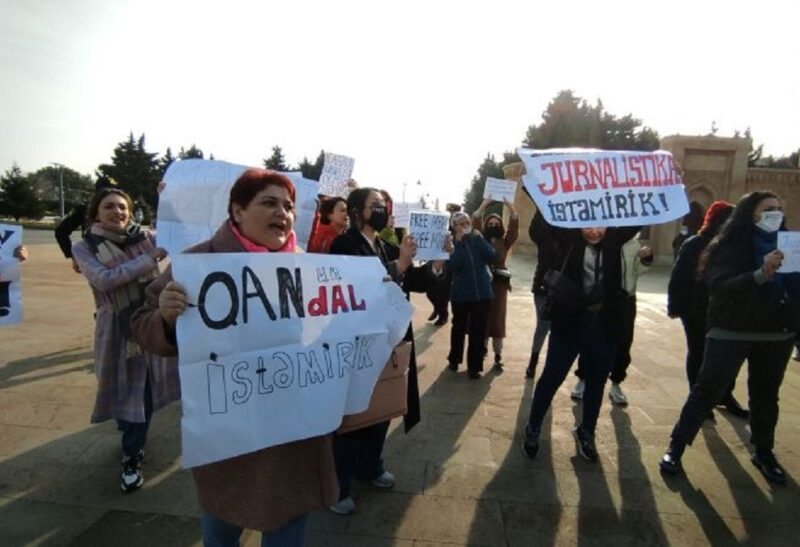I read Days Gone By (Uz. O’tgan kunlar, 1925) by Uzbek author Abdulla Qodiriy sometime in my childhood. However, I still feel the profound sorrow and tragedy of the characters of the novel.
Days Gone By is a bittersweet novel written with simple language – it is highly critical of tradition, the cult of the elderly and violations of women’s rights.
The novel was originally translated into Azerbaijani by Khalid Said Khojayev, who was Uzbek by birth and played a pivotal role in changing the alphabet from the Arabic script to the Latin version.
Days Gone By is not one of those books you read to brag about it later, or to throw around fancy quotations – but it is an invaluable source for understanding the Uzbek people in the early 20th century, before the times of the Soviets.
It’s not a coincidence that the book has come into my mind recently. Against the background of several suicides in Azerbaijan and reports of crippling financial debt and poverty, a part of the novel has been consistently turning up in my mind.
One of the protagonists of Days Gone By, Atabey, is a merchant traveling from Margilan to Fergana in order to check in on a bankrupt merchant.
After the death of his first wife, the poor merchant was unable to get along well with his second wife, and took comfort in the presence of his younger brother-in-law, who remained with him after the death of his first wife.
Atabey, whose wife had left and divorced him, asks the merchant why he is making such a tragedy out of his first wife’s death. And the merchant tells him his story:
“I was a young orphan, but clever. One day Saadet came to the shop where I was working in order to buy some cloth. But she couldn’t afford the silk she had set her eye on. We decided that I would sell the silk to her for cheap and exchange she would help me out with laundry. After a while, I married her. She brought her younger brother to my house as her dowry. Her thriftiness and resourcefulness were of great help to me. Her face was always smiling, and she never complained. She was always active, and never got tired and heightened the mood about the house with her songs and chatter.
Her kind and amiable manners did me well. I was always smiling, and encouraged my workers along with positivity. I wanted to share my happiness with my clients. My trade and income increased, and Saadet’s thriftiness and resourcefulness kept us steady.
One day she got ill. And later she died. My brother-in-law and me become orphans for the second time. After a while I got married with another woman. But my second wife was lazy, moreover she was greedy. She always asked for cloths and materials that we needed in the shop – and she demanded I buy whatever her heart desired for the wedding.
She taunted and teased me and my brother-in-law. She complained constantly, and mumbled to herself when she didn’t get what she wanted.
It seemed as if Saadet had taken the substance of my shop together with her.
Then I understood – I got divorced with my second wife. My work gradually deterioriated in quality. I went bankrupt. I am barely eeking by now. The only memory I have of my wife Saadet is my brother-in-law. I want to help him get an education.
The story of the orphan-merchant and Saadet always reminds me of my grandparents. My grandfather was an orphan as well. When he ‘kidnapped’ my grandmother, he nothing but a mud hut, a rusting bed frame and a glass jar that he used as both a tea pot and a glassş
My 16-year-old grandmother managed my grandfather and his salary. She borrowed a sewing machine from the neighbors, sewed clothes, and used old clothes which were no longer of any use to make a make-shift bed. She didn’t let any vegetables in the garden go to waste. And of course she never stopped taking care of herself, and was always very presentable. My grandfather used to say, ‘your grandmother was so beautiful, and we had such a clean house…I used to think I was entering a palace every time I returned home’.
When I was just coming into my own, my grandfather owned a small house on top of our village. He had the nicest, most well-groomed garden in the whole village. There was freshness and cleanliness from every corner of the house. When my mother got engaged with my father, her friends told her with envy “How luck you are! Do you know whose house you are going to live in?”
My grandfather passed away at 75. His eyes rested on my grandmother’s face for the last 15 days of his life, during which he hadn’t eaten a thing. He couldn’t even swallow the orange juice that my uncles had tried to make him drink.
My grandmother asked him, “If I ask you to, will you drink it?”.
He answered, “If you asked me to drink poison, I would…”.
He drank the juice she offered him, and died smiling, a happy man.
My grandmother is almost eighty years old today. She is still tidy, well-groomed, bright and with it as she always was.
People who had a rich, healthy and enjoyable childhood – those who benefitted from all the things life gave them – are generally incapable of understanding the importance of having a cheerful, amicable and caring mate.
But those who grew up as orphans, or those who grew up in poverty and deprivation, will always value and need a Saadet in their lives.
And so while a majority of people in the country drown in debt, poverty and depression, families should remember the importance of remaining faithful to one another, and strong.



